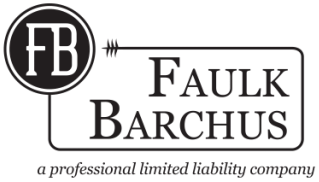|
On June 27, 2012, the San Antonio Court of Appeals decided the case of Arabella Petroleum Company, LLC v. J.H. Baldwin, Jr. In this case, An Oil & Gas Company (A) negotiated with Landowner (B) to acquire oil and gas leases of a 50% mineral interest on two tracts of land in Clay County, Texas (the North Tract and South Tract). B then received a separate Oil, Gas and Mineral Lease and Bank Draft for each tract from A. The executed leases and bank drafts were to be returned to A’s bank, to be held in escrow.
The bank draft had 3 key statements: 1. “Payable on approval of Agreement described hereon, and on approval of title to same by drawee not later than thirty (30) banking days after arrival of this draft at collecting bank.” 2. “Subject alone to the acceptance of payment hereof by drawee, within said time.” 3. “In the event this draft is not paid within said time, the collecting bank shall return the same to forwarding bank and no liability for payment or otherwise shall be attached to any of the parties hereto.” B signed the leases and bank drafts and took them to his bank to forward to A’s bank. Two days later, A’s bank notified A that it received the documents. A then discovered that the owner of the other 50% mineral interest in the North Tract was unwilling to lease the interest to A on terms that A considered to be reasonable. Two weeks later, A contacted A’s bank and instructed it to fund the South Tract bank draft. After funding the draft, A’s bank mistakenly sent A the lease for the North Tract, not realizing it was the wrong lease, and A recorded it on October 31, 2008. Three months later, A instructed A’s bank to return the North Tract draft and lease as cancelled. When A’s bank returned the documents as cancelled, A’s bank discovered that it had mistakenly sent A the North Tract lease. A executed a release of the lease, immediately after A’s bank informed A of the mistake. B then sued A for breach of contract. The trial court ruled in B’s favor and ordered A to pay B $126,625 for the North Tract lease. On appeal, A argued that due to the language contained in the bank drafts, the agreement (1) lacked mutuality and (2) a condition precedent to the formation of the agreement was never satisfied. In deciding the case, the Court found that: (1) the “no liability” clause is an exculpatory clause that causes the parties’ agreement to fail for lack of mutuality and (2) the phrase “subject alone to the acceptance of payment hereof by drawee, within said time” made the funding of the draft within the thirty days a condition precedent to the formation of a contract between the parties. The Court relied on the following 7 principles of Texas law: (1) Texas law requires Courts to construe the lease and the draft together, not as independent documents. Sun Exp. & Prod. Co. v. Benton, 728 S.W.2d 35, 37 (Tex.1987). (2) “[A] contract must be based upon a valid consideration, and [ ] a contract in which there is no consideration moving from one party, or no obligation upon him, lacks mutuality, is unilateral, and unenforceable.” Tex. Gas Utils. Co. v. Barrett, 460 S.W.2d 409, 412 (Tex.1970) (3) Because the bank draft provided conditions precedent to the formation of the parties’ overall agreement, and specifically stated it was drawn to pay for the Oil & Gas Lease, the Court could not view the obligations under the draft independent of the lease. Accordingly, the Court could not construe the language in the lease as providing consideration independent of the draft. (4) In the absence of a contractual requirement that a party make a reasonable effort to perform, Texas law will not imply such a requirement because Texas law does not impose a general duty of good faith and fair dealing in contracts, including oil and gas leases. See City of Midland v. O’Bryant, 18 S.W.3d 209, 215 (Tex. 2000). Had the draft or the lease contractually imposed such a good faith or reasonable efforts requirement, the outcome of this case may have been different. (5) If A had paid the draft, lack of mutuality would no longer be a defense to the enforceability of the lease because “The test for mutuality is to be applied, not as of the time when the promises are made, but as of the time when one or the other is sought to be enforced.” Hutchings v. Slemons, 174 S.W.2d 487, 489 (Tex.1943). Thus, “[a] promise may be unenforceable for want of mutuality when made, and yet the promisee may render it valid and binding by supplying a consideration on his part before the promise is withdrawn.” Big Four Ice & Cold Storage Co., 9 S.W.2d at 178. (6) In order to determine whether a condition precedent exists, the intention of the parties must be ascertained; and that can be done only by looking at the entire contract.’ “ Solar Applications Eng’g, Inc. v. T.A. Operating Corp., 327 S.W.3d 104, 109 (Tex.2010) (7) ‘In order to make performance specifically conditional, a term such as “if,” “provided that,” “on condition that,” or some similar phrase of conditional language must normally be included.’ “ Id. “ ‘While there is no requirement that such phrases be utilized, their absence is probative of the parties’ intention that a promise be made, rather than a condition imposed.’ “ Id. The Court found the phrase “subject alone to” is similar to the phrases the Texas Supreme Court has expressly held to be phrases of conditional language. Accordingly, the Court reversed the trial court’s judgment and rendered judgment that B take nothing on his breach of contract claim against A.
1 Comment
|
Oil and Gas Law Blog
Brandon M. Barchus Archives
June 2017
Categories
All
|


 RSS Feed
RSS Feed
